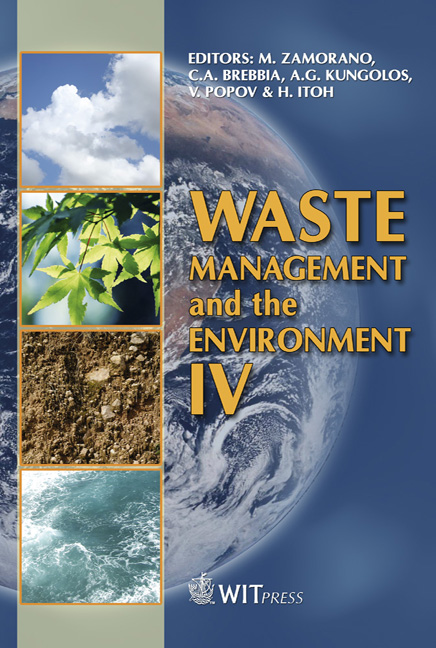Organized And Informal Recycling: Social Movements Contributing To Sustainability
Price
Free (open access)
Transaction
Volume
109
Pages
10
Page Range
223 - 232
Published
2008
Size
312 kb
Paper DOI
10.2495/WM080241
Copyright
WIT Press
Author(s)
J. Gutberlet
Abstract
A paradigm shift recognizing the contribution of inclusive resource recovery to global sustainability is urgently needed. Informal and organized community recycling create social, economic and environmental benefits. Inclusive door-todoor recycling builds awareness for responsible consumption, redirects resources, diminishes environmental impacts from waste disposal and most importantly it contributes to the generation and redistribution of income and hence can tackle poverty reduction. Gathering, separating and selling recyclables has become a survival strategy for the excluded population in most cities. Very few cities in the world have incorporated recycling cooperatives and associations in waste management and only few policies have been developed to support this approach. The few experiences, however, highlight that besides redirecting solid waste into production streams, recycling also builds citizenship and contributes to creating community. Despite these benefits to the environment and to the community at large the recyclers are usually disregarded. As a result of their marginalization, the full potential of the informal and organized recycling industry is not harnessed. Theory on governance, social economy and resource management provide the grounding for the definition of a new concept for inclusive waste management that goes beyond waste disposal addressing responsible consumption and global sustainability. The paper discusses experiences from Latin American recycling networks and case studies on innovative public policies in Brazil. Waste as a resource enhances global sustainability and locally creates job opportunities. Stigmatization and prejudices against the recyclers are to be overcome and the real environmental services provided by this population are yet to be fully recognised. Keywords: resource recovery, community recycling, participatory management.
Keywords
resource recovery, community recycling, participatory management.





